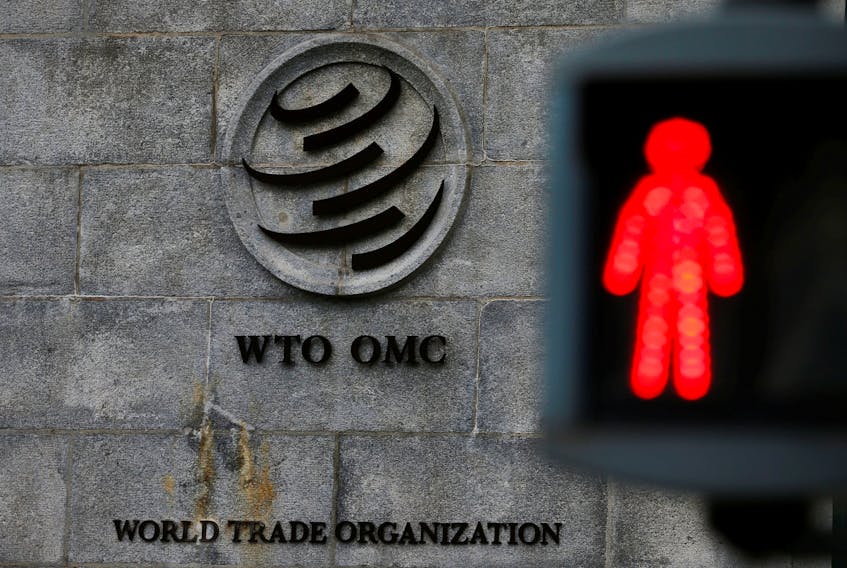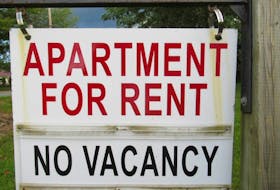U.S. President Donald Trump is at it again. This time he wants to undermine the international trading system’s chief rules enforcer — namely, the World Trade Organization (WTO).
It all comes back to his “America First” and mercantilist proclivities. As far as he is concerned, the rest of the world has been taking advantage of the U.S. for too long. So his WTO gambit is just his way of saying that America is only interested in commercial arrangements, global forums and trade deals that disproportionately benefit the U.S.
At the heart of Trump’s ire is the WTO’s existing trade-dispute arrangements — or the so-called seven-member Appellate Body of adjudicators. By constantly blocking any new appointments to the court, he has made it clear that he will cripple the body by not allowing it to maintain its minimum number of three trade judges (there is now only one judge remaining). In effect, Trump has single-handedly shut down the WTO’s only mechanism for resolving trade disputes between countries.
For some reason, Trump is of the belief that the U.S. does not get a fair shake within the WTO. What he really means is that Washington doesn’t win all of its trade disputes with other countries because of what he sees as a decidedly anti-American bias in WTO trade rulings.
He is particularly exercised about the way that trade decisions have favoured China — one of Trump’s incessant targets of his ill-tempered tweets and tariffs. He is upset that the WTO, at least according to The Donald, looks the other way when it comes to China’s penchant for unfair subsidies and the dumping of cheap goods.
According to Joao Aguiar Machado, the European Union’s WTO ambassador, “we will (now) have an unprecedented situation in the World Trade Organization, which will no longer be able to deliver binding resolution of trade disputes and will no longer guarantee the right to appeal review.” He goes on to say pointedly: “The actions of one member will deprive other members of their right to a binding and two-step dispute settlement system, even though this right is specifically envisaged in the WTO contract.”
As a major trading nation, this is obviously very bad news for Canada. Starkly put, trade comprises over 60 per cent of Canada’s Gross Domestic Product (GDP). And as a country that depends heavily on a rules-based global system, Trump’s insouciance leaves us tremendously exposed economically.
Because Canada is a small to middling power in the world, it doesn’t have the influence to bend other countries to its will. It thus has to rely on multilateral institutions like the WTO to protect and advance its commercial interests. Trump, the trade disrupter-in-chief, poses a serious threat to those interests.
But with the proper rules and global structures in place, Canadian officials believe wholeheartedly that the military power of countries like the U.S. can be effectively neutralized and nullified in any trade dispute. They also viewed the WTO as a hedge against the U.S. hyperpower’s ability to dominate or run roughshod over smaller powers like Canada.
In fact, Canada was one of the founding nations of the post-1945 period’s international trading/financial architecture and rules-based governance system. Ever since, the Canadian government has been a leading proponent of strengthening this regime and protecting it from restrictive or protectionist trading practices. Needless to say, Canada continues to be a huge fan of an open, liberal and unencumbered international trading regime.
But what happens if Trump’s protectionist Washington eventually picks a trade fight with the wrong country or countries? Will not domestic political realities require other countries to respond in kind with their own hardline trade response? How long will a rules-based international trading order survive such debilitating economic shocks to the system?
This is clearly not a trade world that Canada wants to inhabit. We will inevitably get hit hard and certainly pay a significant price if the expected trade wars become more commonplace.
It has long been a guiding principle of Canadian foreign policy that working with other like-minded countries will provide Canada with greater influence and say within international organizations like the WTO. But with this institution’s core dispute-resolution mechanism stymied, it places Canada in a very vulnerable and precarious position.
Indeed, the last thing that Ottawa wants is for the world trading community to return to a situation where the rule of the jungle prevails — or, more accurately, Trump’s rules apply. That, of course, is a recipe for disaster internationally and an incredibly treacherous state of affairs for such a trade-dependent country like Canada. Welcome to Trump’s world!
Peter McKenna is professor of political science at the University of Prince Edward Island in Charlottetown.









